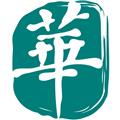哈薩克斯坦騰格
哈薩克斯坦騰格簡介
ISO 4217 Code:KZT
User(s):Kazakhstan
Inflation :8.6%
Source:The World Factbook, 2006 est.
Subunit:1/100 tiyn (тиын)
Symbol:〒, T
Plural:The language(s) of this currency does not have a morphological plural distinction.
Coins:
Freq. used:5, 10, 20, 50, 100 tenge
Rarely used:1, 2 tenge
Banknotes:200, 500, 1000, 2000, 5000, 10 000 tenge
Central bank:National Bank of Kazakhstan
Website:http://www.nationalbank.kz
The tenge (Kazakh: те?ге) is the currency of Kazakhstan. It is divided in 100 tiyn (тиын, also transliteated as tiyin or tijn). It was introduced in November 1993 to replace the Russian ruble at a rate of 1 tenge = 500 rubles. The ISO-4217 code is KZT.
The word tenge in the Kazakh and most other Turkic languages means a set of scales. The origin of the word is the Chinese tengse which means balance. The Turkic languages borrowed this word through Mongolian tenkh(e). The name of this currency is thus similar to the lira, pound and peso. The name of the currency is related to the Russian word for money Russian: деньги / den’gi, which was borrowed from Turkic.
History
Kazakhstan was the one of last countries of CIS to introduce a national currency. In 1991 a "special group" of designers was created: Mendybay Alin, Timur Suleymenov, Asimsaly Duzelkhanov and Khayrulla Gabzhalilov. On November 12, 1993, a decree of the President of Kazakhstan, "About introducing national currency of Republic of Kazakhstan", was issued. On November 15, 1993, the tenge was brought into circulation. As such, November 15 is celebrated as the "Day of national currency of Republic of Kazakhstan".In 1995, a tenge printing factory was opened in Kazakhstan. The first consignment of tenge was printed abroad, in the U.K.. The first coins were minted in Germany.
March 20, two days before Navruz holiday, National Bank of Kazakhstan was approved graphical symbol for tenge. It is character for "Tengri" from Old turkic script like latin "T" with bar above. While the symbol is not yet available in Unicode, the Asian postal mark 〒 (U+3012) can be used as a substitute.
Coins
1, 2, 5, 10, 20, 50 and 100 tenge coins
Enlarge
1, 2, 5, 10, 20, 50 and 100 tenge coins
In 1993, coins were introduced in denominations of 2, 5, 10, 20 and 50 tiyn, 1, 3, 5, 10 and 20 tenge. 50 tenge ware introduced in 1997, followed by 100 tenge in 2002 and 2 tenge in 2005. Coins currently in circulation are:
1 tenge (Brass) 2 tenge (Brass) 5 tenge (Brass) 10 tenge (Brass) 20 tenge (Copper-Nickel) 50 tenge (Copper-Nickel) 100 tenge (Bimetallic, Brass and Copper-Nickel)
Commemorative coins are issued in denominations of 20, 50, 100, 500, 1000, 2500, 5000 and 10000 tenge.
Banknotes
In 1993, the Kazakhstan National Bank issued notes in denominations of 1, 2, 5, 10, 20 and 50 tiyn, 1, 3, 5, 10, 20, 50, 100 and 200 tenge. These were followed by 500 and 1000 tenge notes in 1994. 2000 tenge notes were introduced in 1996, with 5000 tenge in 1998 and 10,000 tenge in 2003. Notes currently in circulation are:
200 tenge portrait of Al-Farabi 500 tenge portrait of Al-Farabi, fragment of Khodzha Akhmet Yassaui mausoleum 1000 tenge portrait of Al-Farabi 2000 tenge portrait of Al-Farabi 5000 tenge portrait of Al-Farabi 10,000 tenge portrait of Al-Farabi, image of snow leopard.
Interestingly, the text on the reverse side of 200 tenge banknote is written in Kazakh, although text on the reverse sides of the other banknotes is written in Russian.
2006 banknotes
The National Bank of Kazakhstan issued banknotes of new series in 2006. They have the same values as the previously existed ones.
The 2006 series is far more exotic than its predecessors. The obverse is vertical and the denomination is written in Kazakh. All denominations depict the Astana Baiterek monument, the flag of Kazakhstan, the Coat of arms, the handprint with a signature of president Nazarbayev and fragments of the national anthem. The main differences across each denomination are only the colours, the values, the underprint patterns.
On the contrary, the reverses are more differentiated. The value is written in Russian. Each denomination shows a unique building and geography of Kazakhstan in the outline of Kazakhstan border.
The first printing of the 2,000 and 5,000 tenge notes issued in 2006 had misspellings of the word for "bank" (the correct spelling "банк?" was misspelled "бан??"). The misspelling was a politically sensitive issue due to the cultural and political importance of the Kazakh language.
Inflation level
哈薩克斯坦騰格樣幣 哈薩克斯坦騰格鑄幣
ISO 4217 Code:KZT
User(s):Kazakhstan
Inflation :8.6%
Source:The World Factbook, 2006 est.
Subunit:1/100 tiyn (тиын)
Symbol:〒, T
Plural:The language(s) of this currency does not have a morphological plural distinction.
Coins:
Freq. used:5, 10, 20, 50, 100 tenge
Rarely used:1, 2 tenge
Banknotes:200, 500, 1000, 2000, 5000, 10 000 tenge
Central bank:National Bank of Kazakhstan
Website:http://www.nationalbank.kz
The tenge (Kazakh: те?ге) is the currency of Kazakhstan. It is divided in 100 tiyn (тиын, also transliteated as tiyin or tijn). It was introduced in November 1993 to replace the Russian ruble at a rate of 1 tenge = 500 rubles. The ISO-4217 code is KZT.
The word tenge in the Kazakh and most other Turkic languages means a set of scales. The origin of the word is the Chinese tengse which means balance. The Turkic languages borrowed this word through Mongolian tenkh(e). The name of this currency is thus similar to the lira, pound and peso. The name of the currency is related to the Russian word for money Russian: деньги / den’gi, which was borrowed from Turkic.
History
Kazakhstan was the one of last countries of CIS to introduce a national currency. In 1991 a "special group" of designers was created: Mendybay Alin, Timur Suleymenov, Asimsaly Duzelkhanov and Khayrulla Gabzhalilov. On November 12, 1993, a decree of the President of Kazakhstan, "About introducing national currency of Republic of Kazakhstan", was issued. On November 15, 1993, the tenge was brought into circulation. As such, November 15 is celebrated as the "Day of national currency of Republic of Kazakhstan".In 1995, a tenge printing factory was opened in Kazakhstan. The first consignment of tenge was printed abroad, in the U.K.. The first coins were minted in Germany.
March 20, two days before Navruz holiday, National Bank of Kazakhstan was approved graphical symbol for tenge. It is character for "Tengri" from Old turkic script like latin "T" with bar above. While the symbol is not yet available in Unicode, the Asian postal mark 〒 (U+3012) can be used as a substitute.
Coins
1, 2, 5, 10, 20, 50 and 100 tenge coins
Enlarge
1, 2, 5, 10, 20, 50 and 100 tenge coins
In 1993, coins were introduced in denominations of 2, 5, 10, 20 and 50 tiyn, 1, 3, 5, 10 and 20 tenge. 50 tenge ware introduced in 1997, followed by 100 tenge in 2002 and 2 tenge in 2005. Coins currently in circulation are:
1 tenge (Brass) 2 tenge (Brass) 5 tenge (Brass) 10 tenge (Brass) 20 tenge (Copper-Nickel) 50 tenge (Copper-Nickel) 100 tenge (Bimetallic, Brass and Copper-Nickel)
Commemorative coins are issued in denominations of 20, 50, 100, 500, 1000, 2500, 5000 and 10000 tenge.
Banknotes
In 1993, the Kazakhstan National Bank issued notes in denominations of 1, 2, 5, 10, 20 and 50 tiyn, 1, 3, 5, 10, 20, 50, 100 and 200 tenge. These were followed by 500 and 1000 tenge notes in 1994. 2000 tenge notes were introduced in 1996, with 5000 tenge in 1998 and 10,000 tenge in 2003. Notes currently in circulation are:
200 tenge portrait of Al-Farabi 500 tenge portrait of Al-Farabi, fragment of Khodzha Akhmet Yassaui mausoleum 1000 tenge portrait of Al-Farabi 2000 tenge portrait of Al-Farabi 5000 tenge portrait of Al-Farabi 10,000 tenge portrait of Al-Farabi, image of snow leopard.
Interestingly, the text on the reverse side of 200 tenge banknote is written in Kazakh, although text on the reverse sides of the other banknotes is written in Russian.
2006 banknotes
The National Bank of Kazakhstan issued banknotes of new series in 2006. They have the same values as the previously existed ones.
The 2006 series is far more exotic than its predecessors. The obverse is vertical and the denomination is written in Kazakh. All denominations depict the Astana Baiterek monument, the flag of Kazakhstan, the Coat of arms, the handprint with a signature of president Nazarbayev and fragments of the national anthem. The main differences across each denomination are only the colours, the values, the underprint patterns.
On the contrary, the reverses are more differentiated. The value is written in Russian. Each denomination shows a unique building and geography of Kazakhstan in the outline of Kazakhstan border.
The first printing of the 2,000 and 5,000 tenge notes issued in 2006 had misspellings of the word for "bank" (the correct spelling "банк?" was misspelled "бан??"). The misspelling was a politically sensitive issue due to the cultural and political importance of the Kazakh language.
Inflation level
哈薩克斯坦騰格樣幣 哈薩克斯坦騰格鑄幣
-
哈薩克斯坦騰格鑄幣1, 2, 5, 10, 20, 50 and 100 tenge coins
熱門資訊更多
新西蘭元/美元 當日內: 有上漲的可能,目標價位定在 0.5926 。
05/01 18:15
KVB昆侖國際
澳元/日元 當日內: 看漲,當 101.96 爲支撐位。
05/01 18:14
KVB昆侖國際
歐元/日元 當日內: 看漲,當 168.02 爲支撐位。
05/01 18:14
KVB昆侖國際
歐元/英鎊 當日內: 看漲,當 0.8532 爲支撐位。
05/01 18:14
KVB昆侖國際
英鎊/日元 當日內: 看漲,當 196.57 爲支撐位。
05/01 18:14
KVB昆侖國際






